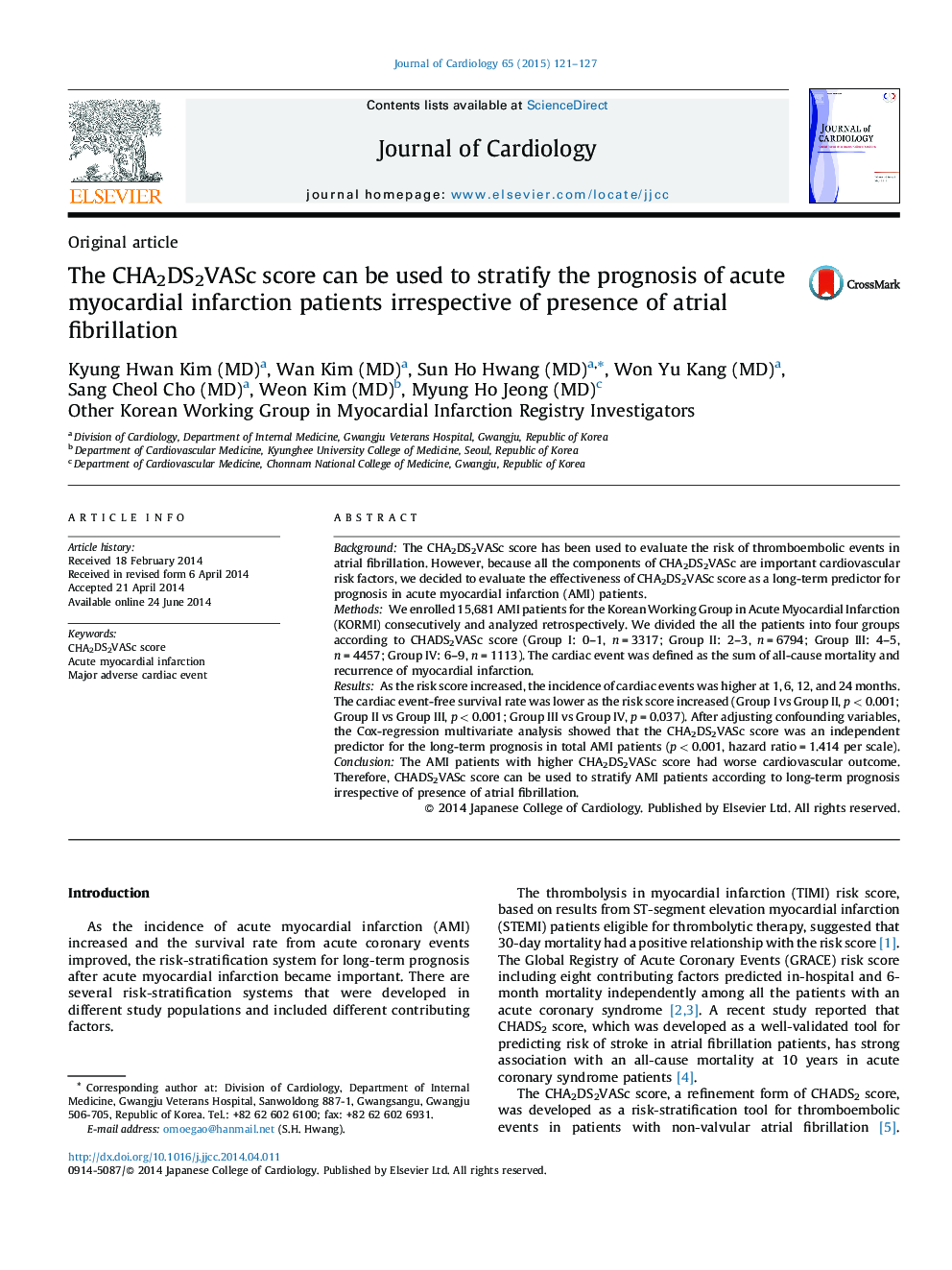| Article ID | Journal | Published Year | Pages | File Type |
|---|---|---|---|---|
| 5983986 | Journal of Cardiology | 2015 | 7 Pages |
BackgroundThe CHA2DS2VASc score has been used to evaluate the risk of thromboembolic events in atrial fibrillation. However, because all the components of CHA2DS2VASc are important cardiovascular risk factors, we decided to evaluate the effectiveness of CHA2DS2VASc score as a long-term predictor for prognosis in acute myocardial infarction (AMI) patients.MethodsWe enrolled 15,681 AMI patients for the Korean Working Group in Acute Myocardial Infarction (KORMI) consecutively and analyzed retrospectively. We divided the all the patients into four groups according to CHADS2VASc score (Group I: 0-1, n = 3317; Group II: 2-3, n = 6794; Group III: 4-5, n = 4457; Group IV: 6-9, n = 1113). The cardiac event was defined as the sum of all-cause mortality and recurrence of myocardial infarction.ResultsAs the risk score increased, the incidence of cardiac events was higher at 1, 6, 12, and 24 months. The cardiac event-free survival rate was lower as the risk score increased (Group I vs Group II, p < 0.001; Group II vs Group III, p < 0.001; Group III vs Group IV, p = 0.037). After adjusting confounding variables, the Cox-regression multivariate analysis showed that the CHA2DS2VASc score was an independent predictor for the long-term prognosis in total AMI patients (p < 0.001, hazard ratio = 1.414 per scale).ConclusionThe AMI patients with higher CHA2DS2VASc score had worse cardiovascular outcome. Therefore, CHADS2VASc score can be used to stratify AMI patients according to long-term prognosis irrespective of presence of atrial fibrillation.
